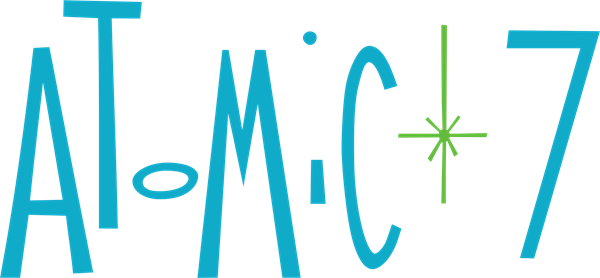MUSIC
MUSIC NOTES
By PHIL DUPERRON and JERED STUFFCO
The fission musicians Atomic 7 · With the James T. Kirks and Escalator · Sidetrack Café · Sat, July 17
Although they sound like a team of superhuman mutants out to save the world, the Atomic 7 are actually an instrumental trio out to save a forgotten genre. Started a few years ago by guitarist Brian Connelly of Shadowy Men On A Shadowy Planet fame, Atomic 7 wants to free the dancefloor from the tyranny of lyrics once and for all. Born and raised in Edmonton, Connelly has called Toronto home for the last "zillion" years, so he's excited to bring his new project out west for the first time. According to him, Atomic 7 and the Shadowy Men are both part of the great tradition of instrumental pop music that was all the rage during the late '50s and early '60s before being virtually forgotten overnight. "There were 50 instrumental bands in every town," Connelly says, "and they'd just do the hits of the day for dancers. It's a really social form of music because it's basically dance music and mood music. Then the Beatles came along and ruined it all. After that you couldn't get a job playing instrumental music, so you had to write your own stuff."
Atomic 7 has just released … en Hillbilly Caliente, their second full-length disc, on Vancouver's Mint Records, and it's a kicker. With snappy titles like "Bury My Foot at Wounded Mouth" and "The Wreck of the Dick Family Wiener Boat" it's clear that Connelly doesn't need words to create groovy emotions. "As a listener," he says, "you get involved because so much of it is mood music, so it does things inside your head that sorta excite the imagination and you draw on your own stuff. So the listener is actually part of it. If four people listen to it, two might get it or get really excited about it, but it all depends on your own musical past."
Even though Atomic 7's go-go/surf/boogie music could put a smile on anyone's face, its instrumental nature still relegates it to the underground. Which is fine by Connelly, who tends to ignore the mainstream himself, figuring that if something's good, sooner or later he'll be made aware of it. Like when he "discovered" OutKast. "I'd never even heard their name before," he says, "and then they were on Saturday Night Live or something doing their big single and I'm going, 'Well, this is a pretty good band. I think these guys are kinda interesting. Perhaps tomorrow I'll go out and see if I can find their small, independent record.' And the next day I opened the door and - holy fuck - there's OutKast posters on my lawn, 30 cars driving by playing ['Hey Ya!']. It's the biggest song on the planet and I'd just completely missed it." (PD)
